How I Use Notion

Notion is a remarkably powerful and versatile tool that has spawned plenty of imitators. I've written about why I use it, but not how. A recent LinkedIn discussion got me thinking about all the ways.
The list in this post isn't comprehensive. You may not think in terms of databases, but I'll bet that you can get more out of this amoeba app than you currently are.
Managing One-Off Projects
Over the last two months, I moved both of my sites from WordPress to Ghost. A Notion database served as each project's central nervous system.
The projects went well for many reasons. At the top of the list:
- My amazing developer.
- We didn't rely on a torrent of emails. It's a key point in Project Management in the Hybrid Workplace.
Instead, Notion served as our central project hub:
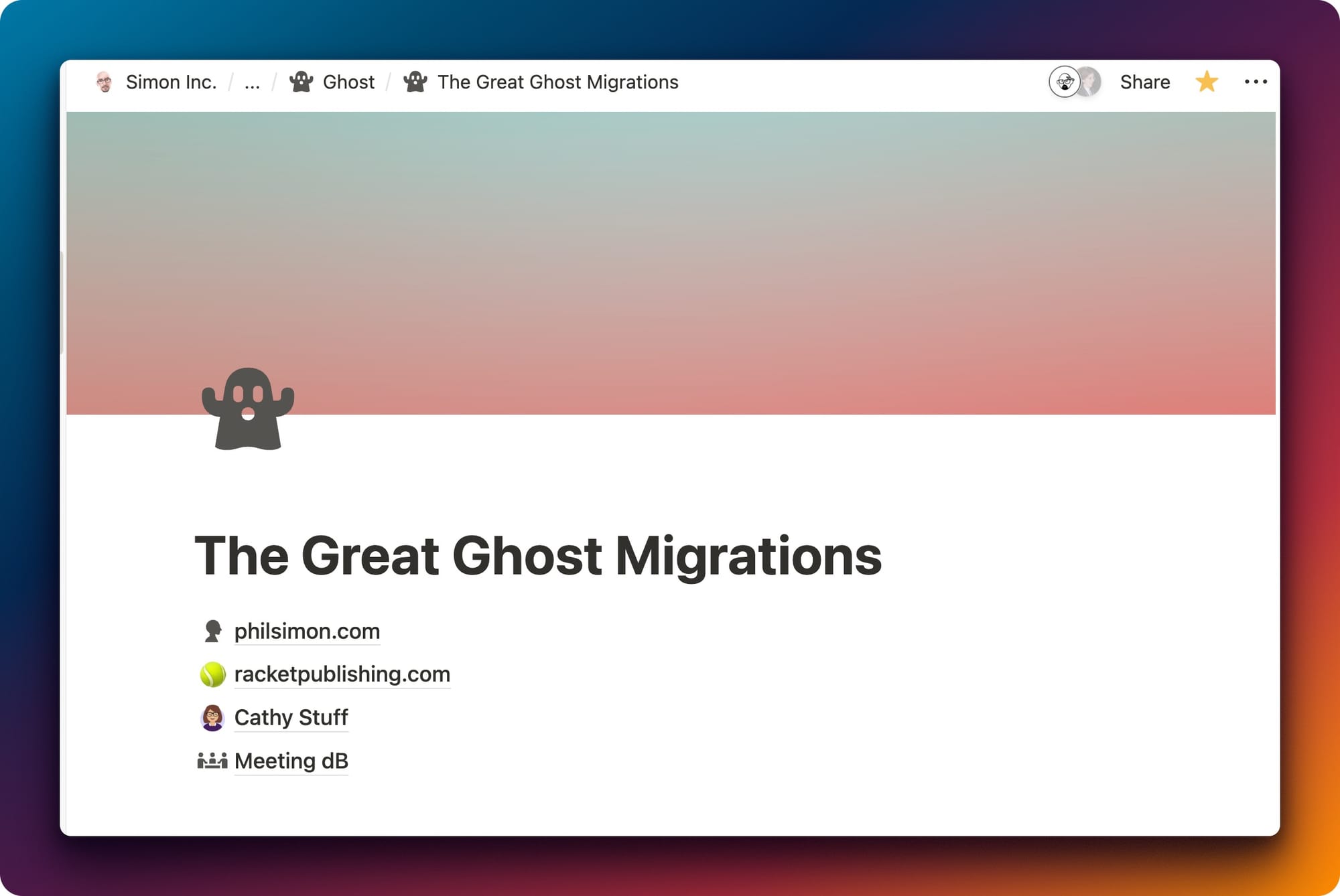
Managing Complex Ghostwriting Projects
Migrating a boatload of posts and pages from one content management system to another is one thing. Ghostwriting a 250-page nonfiction, research-intensive book for a busy professional with a five-person team is another. For this very reason, I built RacketHub on Notion. Maybe it's the Ikea effect in action, but it is the best book management system in the universe. A Wall Street Journal reporter working on her first title recently lauded it.
Tracking Prospects
When someone fills out the form on this site's Connect page, the completed entry winds up in my Notion-based CRM with an assist to Tally.1 The solution is more than sufficient for my needs.
Reading Saved Articles
I used to love the elegant Pocket app. I happily paid $49/year for the right to save my articles, strip out their ads, and listen to them on any device.
Then things broke bad.
Pocket started malfunctioning. I complained to its developers and then stopped using it. Not long after that, it went kaput.
Now I use the Notion Web Clipper to send interesting pieces directly to a Notion database that functions more or less as Pocket once did:
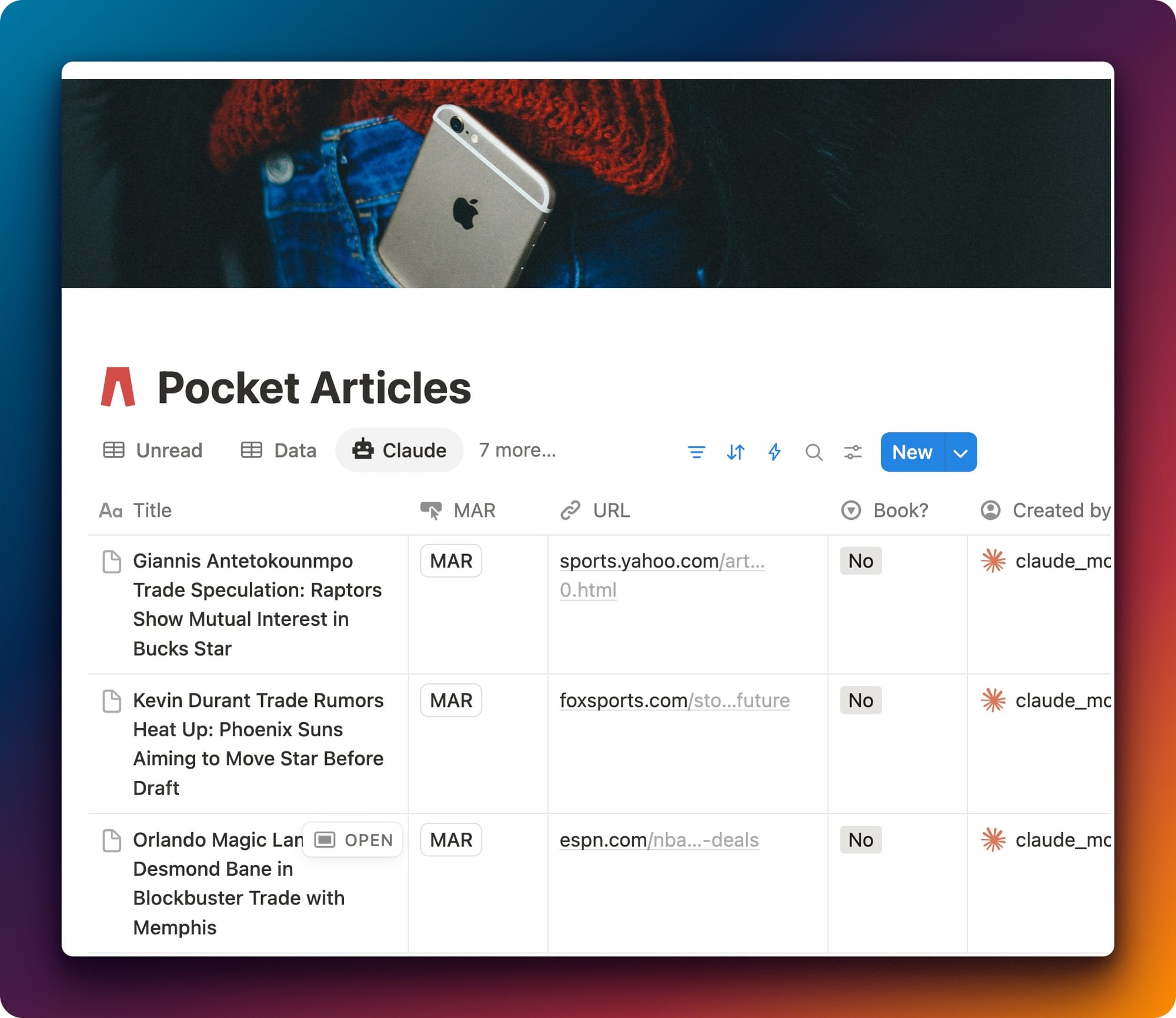
Yes, my system works on any device. If I open a post in Safari, the browser will read it to me if I'm in the car or on a treadmill.

Watching Concerts
Doing HIIT intervals on the gym treadmill isn't terribly exciting, but watching YouTube music videos helps pass the time. Recently, the beautiful “These Chains” from Marillion inspired me while I was getting my sweat on.
Sometimes, though, I want to watch entire prog-rock concerts—ones that don't exist on a streaming service. I'm talking about ones I've purchased as DVDs and then converted to gigantic .mp4 or .mov files.
Why not just upload them to YouTube? Ethics and not a desire to avoid copyright violations. With respect to the latter, popular YouTubers like Rick Beato have to deal with an incessant stream of related bullshit these days.
Rather than fight the machine, I just bring my concerts into Notion, the play button, and voilà!
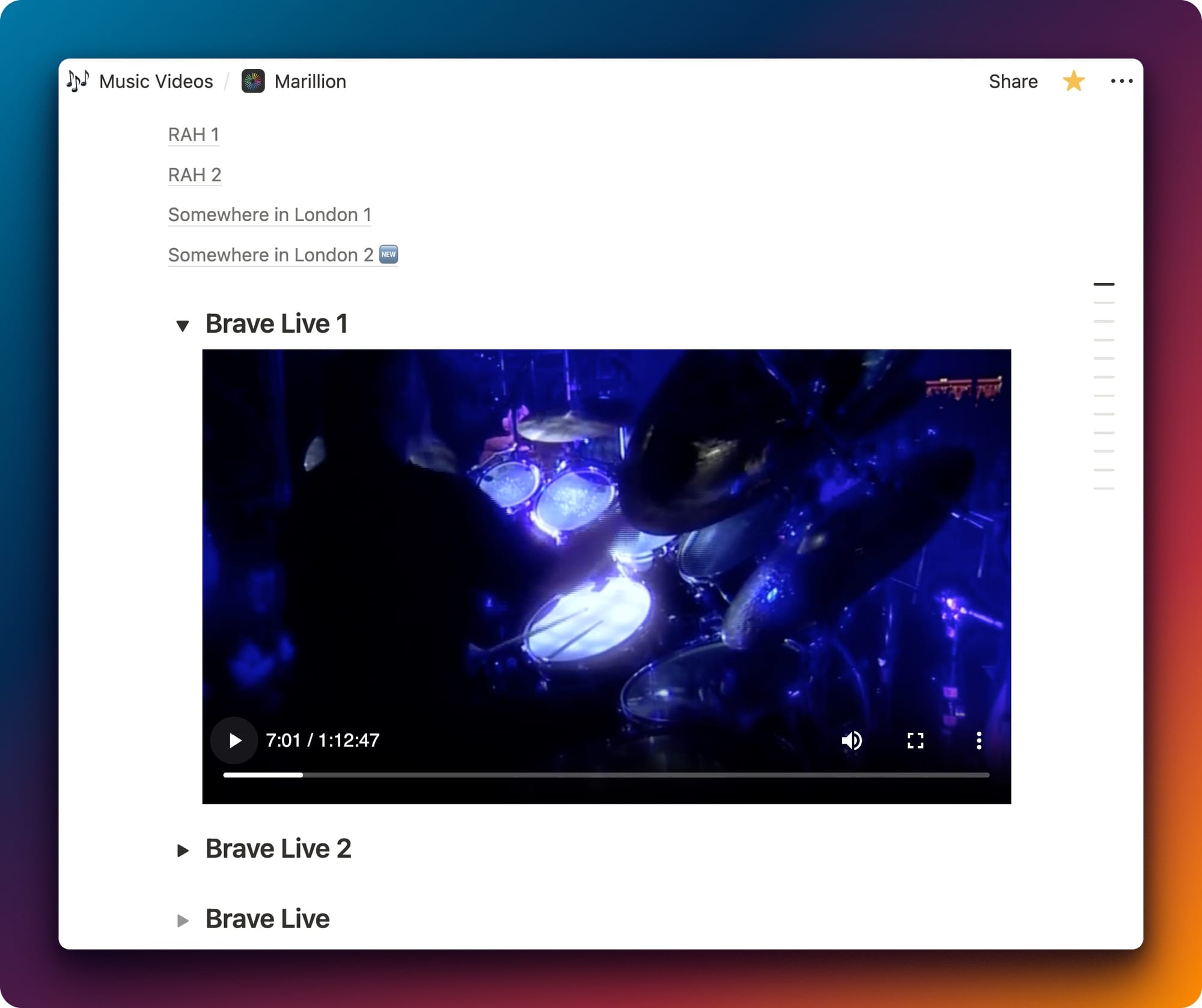
Planning My Trips
Thanks to this Notion template, I no longer forget to bring anything when I get on a plane for a speaking gig or vacay.
Tracking Ideas for Future Blog Posts
I store ideas for future posts in a separate database. In the past, I wrote the posts in Notion and then pasted them into WordPress, but Ghost's visual editor is a pleasure to use.
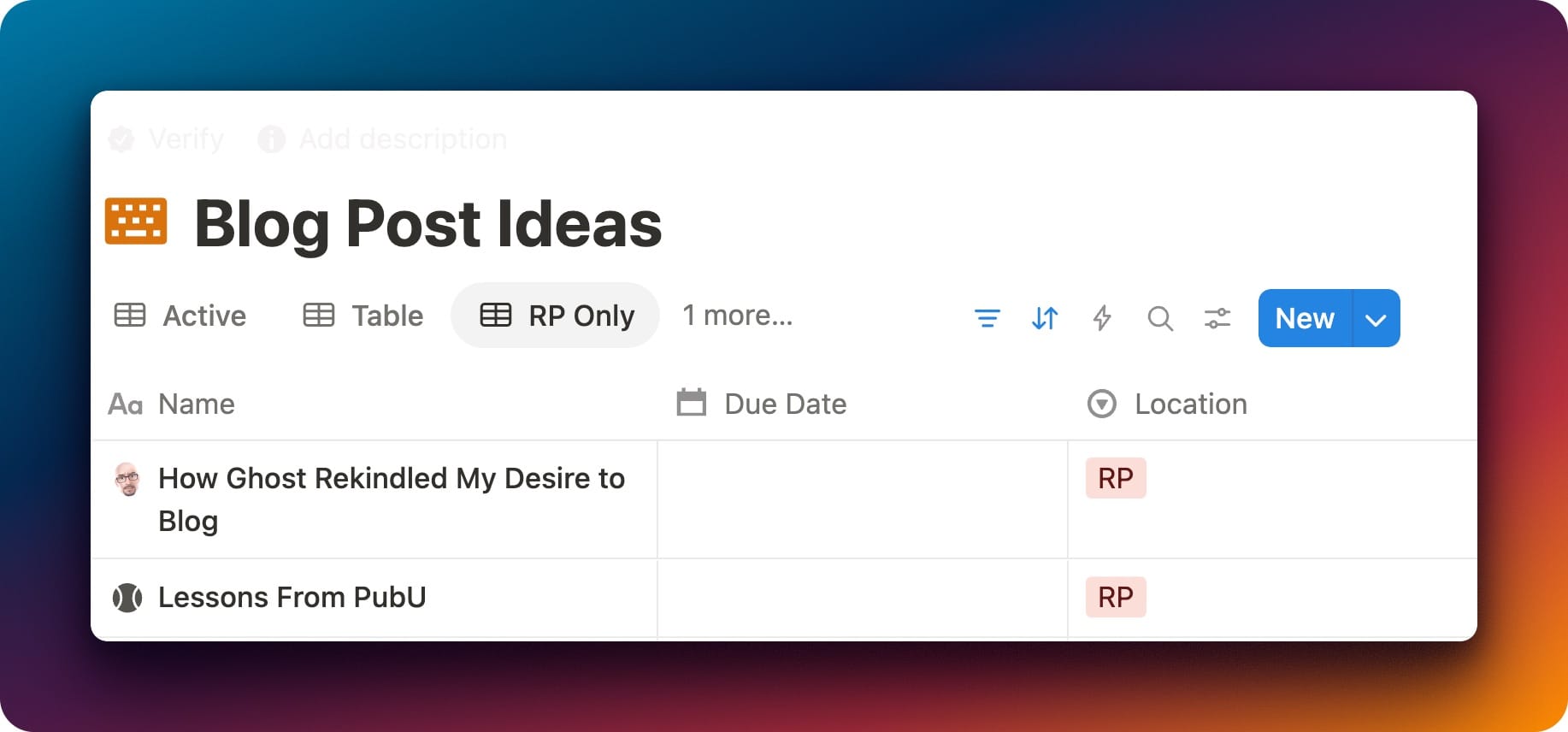
Managing My Site's Subscribers
Now that my website supports subscriptions with different perks, I need to track who gets what.
Enter Notion again.
"I want to do more context switching", said no one ever.
A simple Zapier integration creates a new database entry whenever someone signs up. I can then easily set up one-on-one coaching sessions, send complimentary copies of my books, and the like.
Actively and Passively Earning Money
Individuals, teams, and organizations sometimes need someone with serious Notion development chops. Not coincidentally, I've offered them for the past year.
And then there's the passive income I earn from Notion.
For the last 18 months or so, I've sold templates and courses on the Notion Marketplace (and on Gumroad before that.) When someone purchases one of them, a Notion webhook sends the sale to—wait for it—a dedicated Notion database. Pretty meta, right?
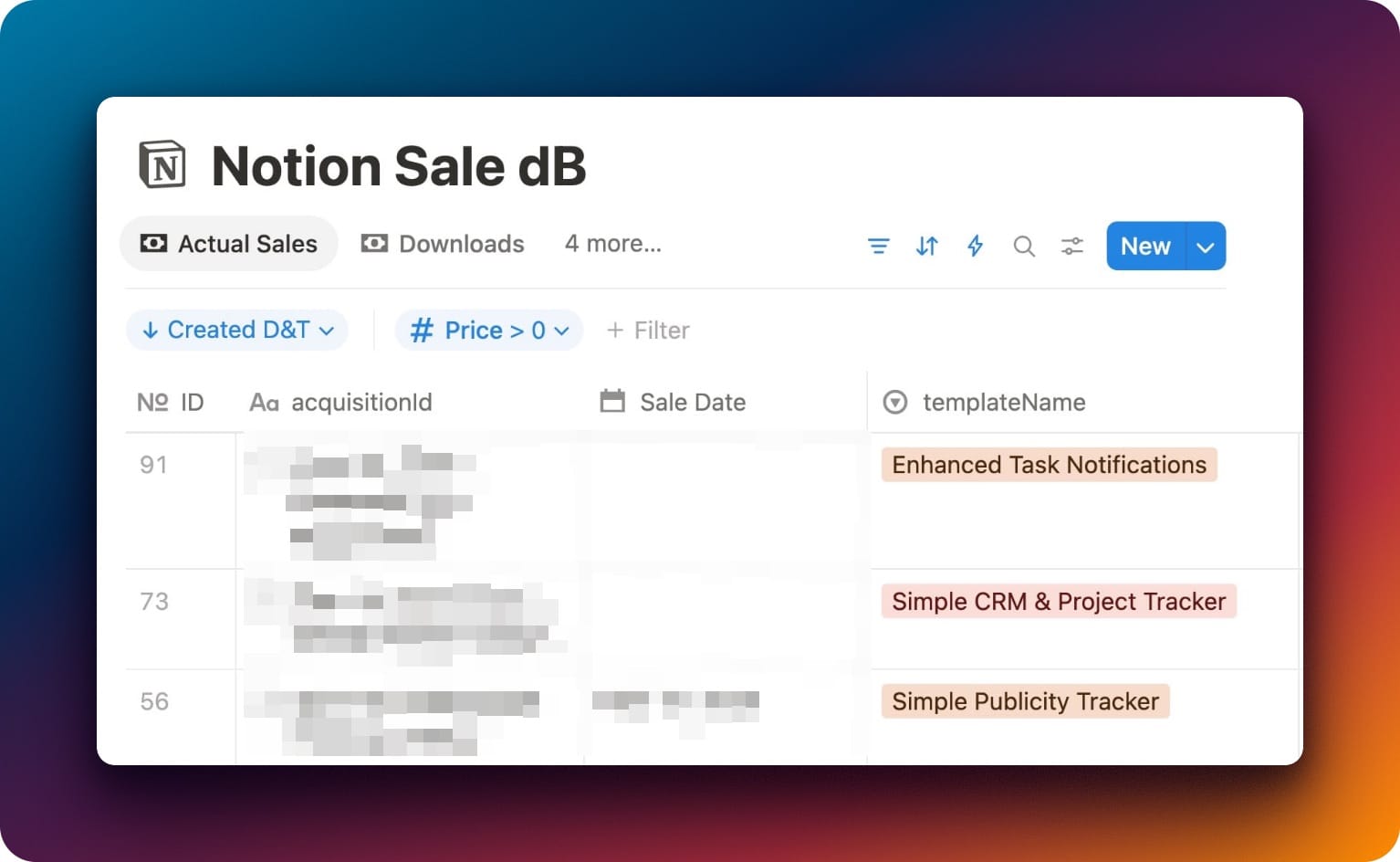

Simon Says: Fewer tools mean fewer headaches and less money spent.
Could I use Salesforce or Google Sheets as my CRM, buy another read-it-later app, and store my videos on Dropbox?
Of course, but Notion works well for all of these purposes.
More broadly, using fewer tools just makes life simpler. Souped-up Notion has eliminated a considerable amount of grunt work and duplicate data entry. Using fewer apps saves me money. Finally, I spend far less time context-switching.
Feedback
How are you using Notion, Coda, Airtable, or a similar tool?
Footnotes
- The solution is more than sufficient for my needs. ↩








Member discussion